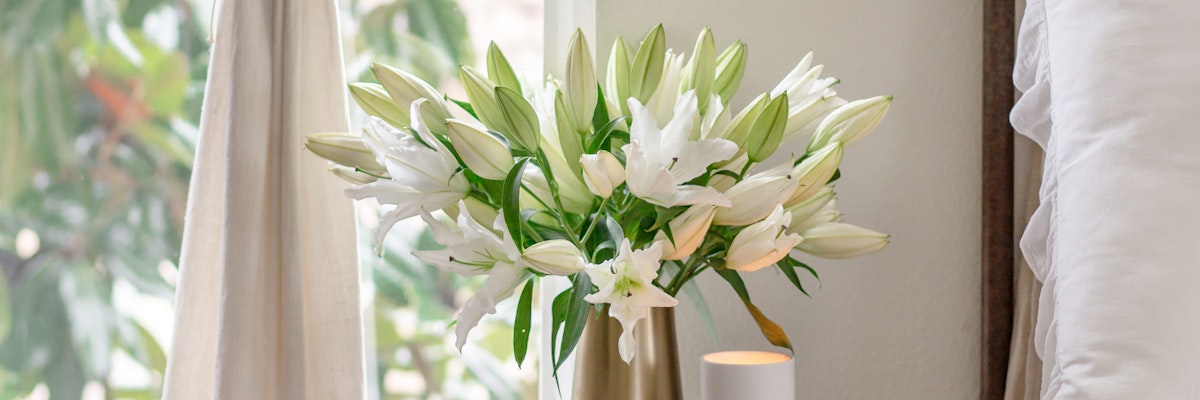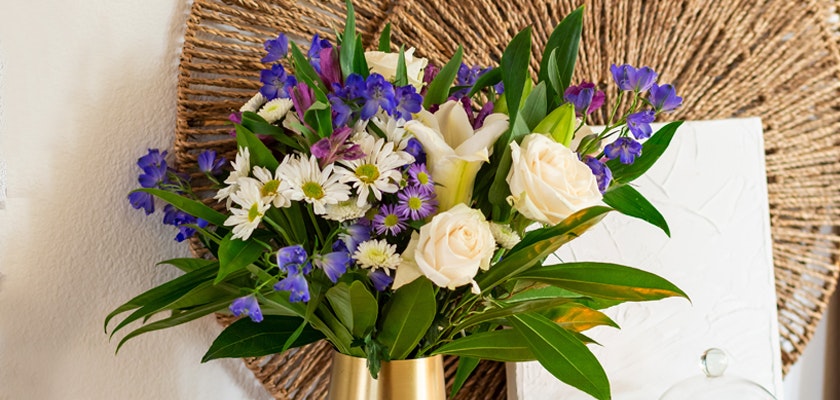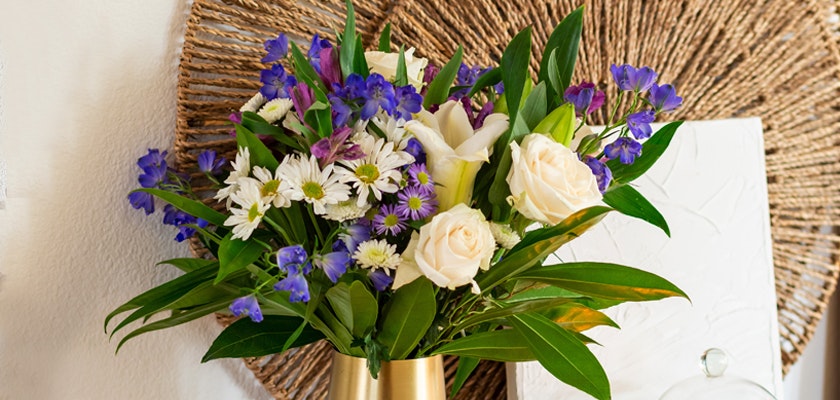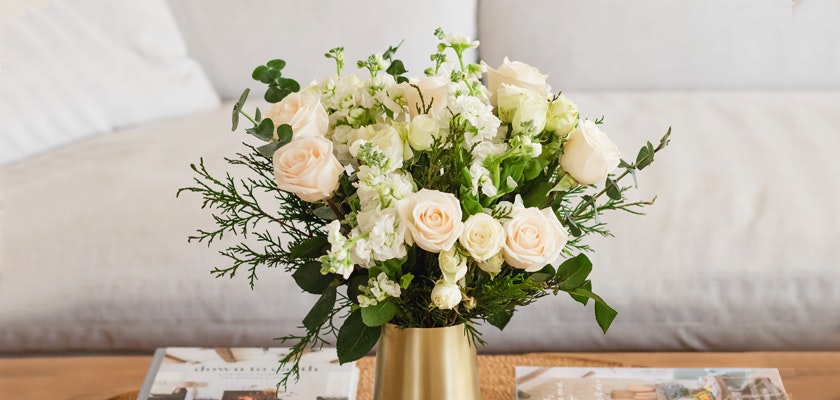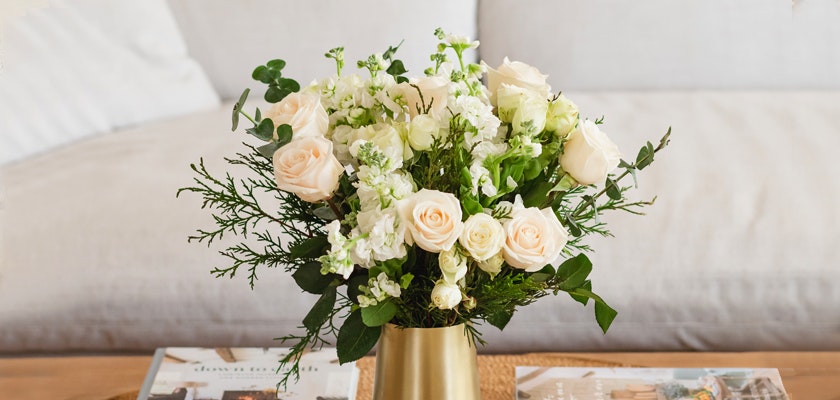Blooms of Remembrance: The Role and Significance of Flowers in Funerals
Flowers, with their captivating beauty and profound symbolism, have long played a significant role in human rituals, including funerals. They serve as a powerful medium for expressing emotions that words often struggle to convey, offering comfort and solace in times of grief.
Discover the symbolism of funeral flowers and how to choose them
Funeral flowers are more than just a tradition; they carry deep meanings and messages. Different types of flowers and their colors each hold unique significance, reflecting various sentiments and emotions. Understanding these symbolic associations can help us choose the most appropriate flowers to honor our lost loved ones.
In this comprehensive guide, we delve into the world of funeral flowers. We explore the meanings behind different flower types and colors, shedding light on their significance in funeral ceremonies. We will also trace the history of using flowers in funerals and discuss their various uses.
Whether you're planning a funeral or looking to express your condolences through flowers, this guide will provide valuable insights. So, let's embark on this journey and uncover the poignant language of funeral flowers.
Discover the symbolism of funeral flowers and how to choose them
Funeral flowers are more than just a tradition; they carry deep meanings and messages. Different types of flowers and their colors each hold unique significance, reflecting various sentiments and emotions. Understanding these symbolic associations can help us choose the most appropriate flowers to honor our lost loved ones.
In this comprehensive guide, we delve into the world of funeral flowers. We explore the meanings behind different flower types and colors, shedding light on their significance in funeral ceremonies. We will also trace the history of using flowers in funerals and discuss their various uses.
Whether you're planning a funeral or looking to express your condolences through flowers, this guide will provide valuable insights. So, let's embark on this journey and uncover the poignant language of funeral flowers.
Color Significance in Funeral Flowers
Red: Red flowers are a powerful symbol of love and respect. Their vibrant hue reflects the depth of emotion, making them a fitting choice for honoring someone who held a significant place in your heart. Roses, carnations, and geraniums in red are often used in funeral arrangements to express heartfelt love and deep respect for the departed.
Blue: Blue flowers, with their serene color, symbolize peace and calm. They offer a sense of tranquility in the face of sorrow, providing solace to the grieving hearts. Blue flowers like hydrangeas, irises, or forget-me-nots in a funeral arrangement can convey your wish for peace and comfort for the deceased's soul and their mourning loved ones.
Orange: Orange flowers represent warmth, energy, and strength. They can symbolize the deceased's vibrant spirit or the strong bonds that were shared. Using orange flowers like marigolds, gerbera daisies, or lilies in a funeral bouquet can express your enduring connection and the lasting impact the person had on your life.
Purple: Purple flowers carry a message of dignity, respect, and admiration. Their royal hue echoes sentiments of honor and high regard, making them a fitting tribute to someone who lived a life worthy of admiration. Funeral arrangements with purple flowers like irises, lavender, or lilacs can express deep respect and admiration for the departed.
Yellow: Yellow flowers are associated with friendship and warmth. Their bright color brings a sense of light and positivity, offering a hopeful reminder amidst the sorrow. Sunflowers, yellow roses, or daffodils in a funeral arrangement can symbolize your cherished friendship with the deceased and the joy they brought into your life.
Pink: Pink flowers symbolize grace, gentleness, and love. Their soft hue reflects tender emotions, making them a beautiful way to express your affection for the departed. Pink flowers such as roses, carnations, or cherry blossoms in a funeral bouquet can convey your heartfelt love and the gentle touch the person left on your heart.
Green: Green flowers represent renewal, life, and hope. They serve as a soothing presence in times of grief, providing a comforting reminder of the cycle of life. Green flowers or foliage in a funeral arrangement can express your belief in eternal life and your hopeful wishes for the deceased's soul.
White: White flowers symbolize purity, innocence, and peace. Their pristine color makes them a popular choice for funerals, embodying the peace we wish for the departed soul. White flowers like lilies, roses, or chrysanthemums in a funeral arrangement can convey messages of peace and the purity of your intentions.
Symbolism of Different Types of Funeral Flowers
Daisies: Daisies are often associated with innocence and purity. Their simple beauty makes them a fitting choice for funerals, especially when remembering someone who lived their life with honesty and simplicity. Daisies in a funeral arrangement can symbolize the purity of the deceased's soul, offering a comforting reminder of their innate goodness.
Snapdragons: Snapdragons represent strength and resilience. They can symbolize the deceased's enduring spirit or the strong bonds that were shared. Using snapdragons in a funeral bouquet can express your admiration for the person's strength and the lasting impact they had on your life.
Tulips: Tulips are associated with love and renewal. Their vibrant colors and elegant form make them a beautiful tribute to a loved one. Tulips in a funeral arrangement can symbolize your enduring love for the deceased and your belief in the renewal of life.
Orchids: Orchids symbolize love, beauty, and strength. Their exotic beauty and long-lasting blooms make them a meaningful choice for funerals. Orchids in a funeral bouquet can convey your deep love for the deceased and your admiration for their inner strength and beauty.
Gladiolus: Gladiolus flowers represent strength, integrity, and sincerity. Their tall, striking appearance makes them a fitting tribute to someone who lived their life with honor and sincerity. Gladiolus in a funeral arrangement can symbolize your respect for the deceased's character and your sincere condolences.
Calla Lilies: Calla lilies are often associated with purity and rebirth. Their elegant form and serene color make them a popular choice for funerals. Calla lilies in a funeral bouquet can symbolize your wish for peace and renewal for the deceased's soul.
Lilies: Lilies are a traditional funeral flower, symbolizing the restored innocence of the deceased's soul. Their fragrant blooms offer comfort and solace to the grieving hearts. Lilies in a funeral arrangement can convey your belief in the purity of the deceased's soul and your wish for their eternal peace.
Iris: The iris symbolizes hope and faith. Its vibrant colors and intricate patterns make it a beautiful tribute to a lost loved one. An iris in a funeral bouquet can convey your hopeful wishes for the deceased's journey and your faith in the afterlife.
Roses: A Colorful Tribute
Red Roses: Red roses are a powerful symbol of love and respect. Their vibrant hue reflects the depth of emotion, making them a fitting choice for honoring a significant relationship. Red roses in a funeral arrangement can express your deep love and respect for the departed.
Pink Roses: Pink roses symbolize grace, gentleness, and love. Their soft hue reflects tender emotions, making them a beautiful way to express your affection for the deceased. Pink roses in a funeral bouquet can convey your heartfelt love and the gentle touch the person left on your heart.
White Roses: White roses symbolize purity, innocence, and peace. Their pristine color makes them a popular choice for funerals, embodying the peace we wish for the departed soul. White roses in a funeral arrangement can convey messages of peace and the purity of your intentions.
Black Roses: While black roses are not common in funerals, they symbolize death, farewell, and rebirth. They can be a powerful expression of grief and a symbolic farewell to the deceased. Black roses in a funeral arrangement can symbolize your deep sorrow and your belief in the cycle of life and death.
Color Significance in Funeral Flowers
Red: Red flowers are a powerful symbol of love and respect. Their vibrant hue reflects the depth of emotion, making them a fitting choice for honoring someone who held a significant place in your heart. Roses, carnations, and geraniums in red are often used in funeral arrangements to express heartfelt love and deep respect for the departed.
Blue: Blue flowers, with their serene color, symbolize peace and calm. They offer a sense of tranquility in the face of sorrow, providing solace to the grieving hearts. Blue flowers like hydrangeas, irises, or forget-me-nots in a funeral arrangement can convey your wish for peace and comfort for the deceased's soul and their mourning loved ones.
Orange: Orange flowers represent warmth, energy, and strength. They can symbolize the deceased's vibrant spirit or the strong bonds that were shared. Using orange flowers like marigolds, gerbera daisies, or lilies in a funeral bouquet can express your enduring connection and the lasting impact the person had on your life.
Purple: Purple flowers carry a message of dignity, respect, and admiration. Their royal hue echoes sentiments of honor and high regard, making them a fitting tribute to someone who lived a life worthy of admiration. Funeral arrangements with purple flowers like irises, lavender, or lilacs can express deep respect and admiration for the departed.
Yellow: Yellow flowers are associated with friendship and warmth. Their bright color brings a sense of light and positivity, offering a hopeful reminder amidst the sorrow. Sunflowers, yellow roses, or daffodils in a funeral arrangement can symbolize your cherished friendship with the deceased and the joy they brought into your life.
Pink: Pink flowers symbolize grace, gentleness, and love. Their soft hue reflects tender emotions, making them a beautiful way to express your affection for the departed. Pink flowers such as roses, carnations, or cherry blossoms in a funeral bouquet can convey your heartfelt love and the gentle touch the person left on your heart.
Green: Green flowers represent renewal, life, and hope. They serve as a soothing presence in times of grief, providing a comforting reminder of the cycle of life. Green flowers or foliage in a funeral arrangement can express your belief in eternal life and your hopeful wishes for the deceased's soul.
White: White flowers symbolize purity, innocence, and peace. Their pristine color makes them a popular choice for funerals, embodying the peace we wish for the departed soul. White flowers like lilies, roses, or chrysanthemums in a funeral arrangement can convey messages of peace and the purity of your intentions.
Symbolism of Different Types of Funeral Flowers
Daisies: Daisies are often associated with innocence and purity. Their simple beauty makes them a fitting choice for funerals, especially when remembering someone who lived their life with honesty and simplicity. Daisies in a funeral arrangement can symbolize the purity of the deceased's soul, offering a comforting reminder of their innate goodness.
Snapdragons: Snapdragons represent strength and resilience. They can symbolize the deceased's enduring spirit or the strong bonds that were shared. Using snapdragons in a funeral bouquet can express your admiration for the person's strength and the lasting impact they had on your life.
Tulips: Tulips are associated with love and renewal. Their vibrant colors and elegant form make them a beautiful tribute to a loved one. Tulips in a funeral arrangement can symbolize your enduring love for the deceased and your belief in the renewal of life.
Orchids: Orchids symbolize love, beauty, and strength. Their exotic beauty and long-lasting blooms make them a meaningful choice for funerals. Orchids in a funeral bouquet can convey your deep love for the deceased and your admiration for their inner strength and beauty.
Gladiolus: Gladiolus flowers represent strength, integrity, and sincerity. Their tall, striking appearance makes them a fitting tribute to someone who lived their life with honor and sincerity. Gladiolus in a funeral arrangement can symbolize your respect for the deceased's character and your sincere condolences.
Calla Lilies: Calla lilies are often associated with purity and rebirth. Their elegant form and serene color make them a popular choice for funerals. Calla lilies in a funeral bouquet can symbolize your wish for peace and renewal for the deceased's soul.
Lilies: Lilies are a traditional funeral flower, symbolizing the restored innocence of the deceased's soul. Their fragrant blooms offer comfort and solace to the grieving hearts. Lilies in a funeral arrangement can convey your belief in the purity of the deceased's soul and your wish for their eternal peace.
Iris: The iris symbolizes hope and faith. Its vibrant colors and intricate patterns make it a beautiful tribute to a lost loved one. An iris in a funeral bouquet can convey your hopeful wishes for the deceased's journey and your faith in the afterlife.
Roses: A Colorful Tribute
Red Roses: Red roses are a powerful symbol of love and respect. Their vibrant hue reflects the depth of emotion, making them a fitting choice for honoring a significant relationship. Red roses in a funeral arrangement can express your deep love and respect for the departed.
Pink Roses: Pink roses symbolize grace, gentleness, and love. Their soft hue reflects tender emotions, making them a beautiful way to express your affection for the deceased. Pink roses in a funeral bouquet can convey your heartfelt love and the gentle touch the person left on your heart.
White Roses: White roses symbolize purity, innocence, and peace. Their pristine color makes them a popular choice for funerals, embodying the peace we wish for the departed soul. White roses in a funeral arrangement can convey messages of peace and the purity of your intentions.
Black Roses: While black roses are not common in funerals, they symbolize death, farewell, and rebirth. They can be a powerful expression of grief and a symbolic farewell to the deceased. Black roses in a funeral arrangement can symbolize your deep sorrow and your belief in the cycle of life and death.
Carnations: A Colorful Expression of Sentiments
Red Carnations: Red carnations symbolize love and admiration. Their vibrant color and long-lasting blooms make them a popular choice for expressing deep emotions. Red carnations in a funeral arrangement can convey your love and admiration for the deceased.
Pink Carnations: Pink carnations symbolize a mother's eternal love. Their soft color and delicate form make them a fitting tribute to a lost mother or grandmother. Pink carnations in a funeral bouquet can express your eternal love and the enduring bond between a mother and her child.
White Carnations: White carnations symbolize purity, innocence, and love. Their pristine color makes them a popular choice for funerals, embodying the purity of love and the innocence of the deceased's soul. White carnations in a funeral arrangement can convey your pure love for the deceased and your wish for their eternal peace.
A Brief History of Funeral Flowers
The use of flowers in funerals dates back to ancient times. Archaeologists have found evidence of flower burials dating as far back as 60,000 BC. Early humans used flowers not only for their aesthetic appeal but also for their aromatic properties, which helped mask the scent of decay.
In ancient Egypt, flowers were a significant part of burial rituals. Wreaths and garlands made from flowers like lotus and papyrus were placed in tombs as offerings to the gods. Similarly, in ancient Greece and Rome, flowers were used to adorn the deceased and their burial sites.
During the Victorian era, the language of flowers, or floriography, was at its peak. Flowers were used to express feelings and messages that Victorian society deemed inappropriate to say out loud. Each flower and its color had a specific meaning, and these were used to communicate sentiments at funerals.
In modern times, flowers continue to play a crucial role in funerals across different cultures. They are used to honor the deceased, comfort the living, and express emotions like love, respect, and sorrow. The types of flowers and their arrangements can vary significantly, reflecting personal preferences, cultural practices, and religious beliefs.
Today, with the advent of online flower delivery services like BloomsyBox, sending funeral flowers has become more accessible. These services allow people to express their condolences and show their support, even when they can't be physically present at the funeral.
Funeral Flower Uses
Flowers serve various purposes in funerals, from expressing emotions to decorating the venue. They are a universal symbol of love and respect for the deceased and a source of comfort for the mourning family and friends.
One of the primary uses of flowers in funerals is to convey condolences. A carefully chosen floral arrangement can express feelings of sympathy, love, and respect, providing comfort to the bereaved.
Funeral flowers are also used to honor the deceased. They serve as a tribute to the person's life and reflect their personality, interests, or favorite colors. For instance, a bouquet of the deceased's favorite flowers can be a touching personal tribute.
In funeral ceremonies, flowers are often used to adorn the casket. This tradition dates back to ancient times when flowers were used to mask the scent of decay. Today, casket sprays are more symbolic, representing love and respect for the departed.
Flowers also play a decorative role in funerals. They add beauty and serenity to the venue, creating a peaceful environment for people to pay their respects. Floral arrangements can be used to decorate the altar, entrance, or seating area.
Lastly, flowers are often taken to the gravesite as a sign of remembrance. Leaving flowers at the grave is a way of expressing ongoing love and respect for the deceased, keeping their memory alive.
Carnations: A Colorful Expression of Sentiments
Red Carnations: Red carnations symbolize love and admiration. Their vibrant color and long-lasting blooms make them a popular choice for expressing deep emotions. Red carnations in a funeral arrangement can convey your love and admiration for the deceased.
Pink Carnations: Pink carnations symbolize a mother's eternal love. Their soft color and delicate form make them a fitting tribute to a lost mother or grandmother. Pink carnations in a funeral bouquet can express your eternal love and the enduring bond between a mother and her child.
White Carnations: White carnations symbolize purity, innocence, and love. Their pristine color makes them a popular choice for funerals, embodying the purity of love and the innocence of the deceased's soul. White carnations in a funeral arrangement can convey your pure love for the deceased and your wish for their eternal peace.
A Brief History of Funeral Flowers
The use of flowers in funerals dates back to ancient times. Archaeologists have found evidence of flower burials dating as far back as 60,000 BC. Early humans used flowers not only for their aesthetic appeal but also for their aromatic properties, which helped mask the scent of decay.
In ancient Egypt, flowers were a significant part of burial rituals. Wreaths and garlands made from flowers like lotus and papyrus were placed in tombs as offerings to the gods. Similarly, in ancient Greece and Rome, flowers were used to adorn the deceased and their burial sites.
During the Victorian era, the language of flowers, or floriography, was at its peak. Flowers were used to express feelings and messages that Victorian society deemed inappropriate to say out loud. Each flower and its color had a specific meaning, and these were used to communicate sentiments at funerals.
In modern times, flowers continue to play a crucial role in funerals across different cultures. They are used to honor the deceased, comfort the living, and express emotions like love, respect, and sorrow. The types of flowers and their arrangements can vary significantly, reflecting personal preferences, cultural practices, and religious beliefs.
Today, with the advent of online flower delivery services like BloomsyBox, sending funeral flowers has become more accessible. These services allow people to express their condolences and show their support, even when they can't be physically present at the funeral.
Funeral Flower Uses
Flowers serve various purposes in funerals, from expressing emotions to decorating the venue. They are a universal symbol of love and respect for the deceased and a source of comfort for the mourning family and friends.
One of the primary uses of flowers in funerals is to convey condolences. A carefully chosen floral arrangement can express feelings of sympathy, love, and respect, providing comfort to the bereaved.
Funeral flowers are also used to honor the deceased. They serve as a tribute to the person's life and reflect their personality, interests, or favorite colors. For instance, a bouquet of the deceased's favorite flowers can be a touching personal tribute.
In funeral ceremonies, flowers are often used to adorn the casket. This tradition dates back to ancient times when flowers were used to mask the scent of decay. Today, casket sprays are more symbolic, representing love and respect for the departed.
Flowers also play a decorative role in funerals. They add beauty and serenity to the venue, creating a peaceful environment for people to pay their respects. Floral arrangements can be used to decorate the altar, entrance, or seating area.
Lastly, flowers are often taken to the gravesite as a sign of remembrance. Leaving flowers at the grave is a way of expressing ongoing love and respect for the deceased, keeping their memory alive.
Choosing the Right Color and Type of Funeral Flowers
When choosing flowers for a funeral, consider the symbolism of their colors. Red flowers can express deep love and respect, blue flowers symbolize peace and comfort, and orange flowers represent warmth and energy. Purple flowers convey dignity and honor, yellow flowers symbolize friendship and warmth, and pink flowers express gentle love and grace. Green flowers signify renewal and hope, while white flowers symbolize purity and peace.
The type of flower you choose can also carry significant meaning. Daisies symbolize innocence and purity, snapdragons represent strength and resilience, and tulips embody love and renewal. Orchids convey love and beauty, gladiolus symbolize strength and integrity, and calla lilies represent purity and rebirth. Lilies, a traditional funeral flower, symbolize the restored innocence of the soul, while irises convey hope and faith.
BloomsyBox: A Trusted Source for Funeral Flowers
During times of sorrow, BloomsyBox offers a reliable and thoughtful way to express your condolences through flowers. They provide a range of beautiful bouquets, handcrafted by expert florists, to convey your sympathy and respect.
BloomsyBox's commitment to quality ensures that each bouquet features fresh, sustainably sourced flowers, carefully arranged to reflect your sentiments. Their online service allows you to select and send the appropriate flowers with ease, even if you are unable to attend the funeral in person.
The benefits of choosing BloomsyBox extend beyond their high-quality bouquets. Their dedication to sustainable practices means every purchase supports environmentally responsible farming. Plus, their efficient delivery service ensures that your flowers arrive fresh and vibrant, providing comfort to the bereaved when they need it most.
Flowers have been intertwined with funerals across cultures and centuries, serving as silent yet powerful bearers of our deepest emotions. Their beauty provides comfort in grief, their symbolism helps us express our feelings, and their presence reminds us of the cycle of life — the blooming, the wilting, and the promise of a new bloom.
Choosing the right flowers for a funeral can be a deeply personal decision, reflecting your relationship with the deceased, their personality, and your cultural traditions. Whether it's the vibrant red of love, the serene blue of peace, or the pure white of innocence, every color and type of flower holds a special significance.
As we navigate through the sorrow of loss, flowers offer a gentle touch of comfort and a poignant way to express our love and respect. In every petal and leaf, they carry our unspoken messages, helping us honor our lost loved ones and find solace in their memory.
Choosing the Right Color and Type of Funeral Flowers
When choosing flowers for a funeral, consider the symbolism of their colors. Red flowers can express deep love and respect, blue flowers symbolize peace and comfort, and orange flowers represent warmth and energy. Purple flowers convey dignity and honor, yellow flowers symbolize friendship and warmth, and pink flowers express gentle love and grace. Green flowers signify renewal and hope, while white flowers symbolize purity and peace.
The type of flower you choose can also carry significant meaning. Daisies symbolize innocence and purity, snapdragons represent strength and resilience, and tulips embody love and renewal. Orchids convey love and beauty, gladiolus symbolize strength and integrity, and calla lilies represent purity and rebirth. Lilies, a traditional funeral flower, symbolize the restored innocence of the soul, while irises convey hope and faith.
BloomsyBox: A Trusted Source for Funeral Flowers
During times of sorrow, BloomsyBox offers a reliable and thoughtful way to express your condolences through flowers. They provide a range of beautiful bouquets, handcrafted by expert florists, to convey your sympathy and respect.
BloomsyBox's commitment to quality ensures that each bouquet features fresh, sustainably sourced flowers, carefully arranged to reflect your sentiments. Their online service allows you to select and send the appropriate flowers with ease, even if you are unable to attend the funeral in person.
The benefits of choosing BloomsyBox extend beyond their high-quality bouquets. Their dedication to sustainable practices means every purchase supports environmentally responsible farming. Plus, their efficient delivery service ensures that your flowers arrive fresh and vibrant, providing comfort to the bereaved when they need it most.
Flowers have been intertwined with funerals across cultures and centuries, serving as silent yet powerful bearers of our deepest emotions. Their beauty provides comfort in grief, their symbolism helps us express our feelings, and their presence reminds us of the cycle of life — the blooming, the wilting, and the promise of a new bloom.
Choosing the right flowers for a funeral can be a deeply personal decision, reflecting your relationship with the deceased, their personality, and your cultural traditions. Whether it's the vibrant red of love, the serene blue of peace, or the pure white of innocence, every color and type of flower holds a special significance.
As we navigate through the sorrow of loss, flowers offer a gentle touch of comfort and a poignant way to express our love and respect. In every petal and leaf, they carry our unspoken messages, helping us honor our lost loved ones and find solace in their memory.
In such times, BloomsyBox stands by your side, offering a range of beautiful sympathy floral arrangement to help you express your condolences. Because when words fall short, let flowers speak.
In such times, BloomsyBox stands by your side, offering a range of beautiful sympathy floral arrangement to help you express your condolences. Because when words fall short, let flowers speak.
